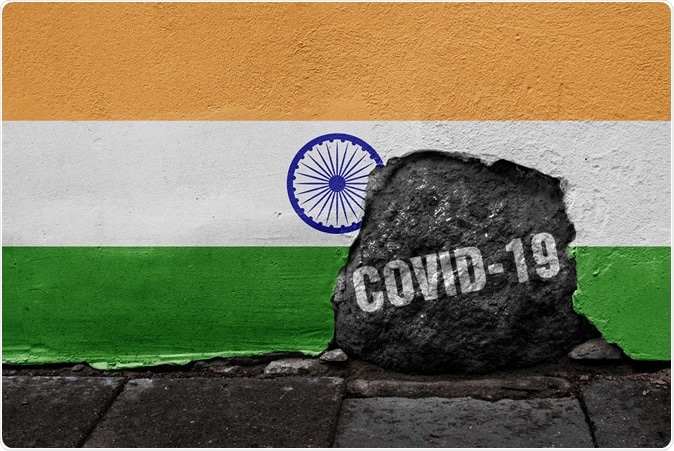China has borne the brunt of the coronavirus outbreak with tens of thousands infected and 2,912 deaths related to the coronavirus disease (COVID-19). Now, health officials across the globe are urging India to be on high alert.
While India has five confirmed cases of COVID-19, a staggering 23,531 people are under investigation.

Image Credit: Bekulnis / Shutterstock
Two new reported cases include a patient in New Delhi and another from Telangana. Both patients had a travel history to Dubai in the United Arab Emirates and Italy and are in stable condition and are being monitored.
The focus has now turned to India as agencies in the United States are currently monitoring the spread of coronavirus across the globe, worried about the country's ability to handle a widespread outbreak.
Like China (the source of the outbreak), India is densely populated, and if the virus spreads throughout the country, it has the potential to be catastrophic. This is exacerbated by the country's underfunded healthcare system and a high rate of migration. With all these risk factors present, if the virus arrives there, it could lead to an extensive outbreak.
Health authorities warn that India should be extra-vigilant about an outbreak of COVID-19 and should prepare and impose measures to alleviate any economic impact in case an untoward situation arises.
In addition to its already compromised health infrastructure, India is highly dependent on China for medical equipment, which could result in an outbreak much more severe than seen elsewhere outside of China to date.
While India has a population similar in size to that of China (1.38 billion versus 1.43 billion respectively), the World Health Organization has warned that COVID-19 appears to spread faster outside mainland China.
With human-to-human transmission now occurring even in people who do not have any links to a known outbreak, the arrival of the virus in such a densely populated country could devastate the underfunded and overloaded healthcare system.
Rapid spread
The rapid spread of the virus in Iran, Italy, and South Korea preceded India's place on the watch list. Iran has reported the highest number of deaths related to COVID-19 outside mainland China with 66 deaths from the 1,501 confirmed cases.
South Korea has 4,335 confirmed cases with 28 deaths, while Italy has 2,036 cases with 52 deaths.
New countries have reported their first cases of the deadly virus, including Indonesia, with two instances, Scotland, Dominican Republic, and the Czech Republic.
In the United States, health officials this week announced a second coronavirus case in California, which has baffled medical experts as the patient has no links to previous cases. The country has reported two COVID-19 deaths in Washington.
So far, the virus has disrupted many lives, with schools canceled in Japan, and many Chinese provinces locked down. Italy has locked down two hotspots of the outbreak. Travel bans are also in place for various countries, while significant events such as major sports tournaments, conventions, and concerts were canceled to contain the virus and prevent its further spread.
The World Health Organization (WHO) reports that many vaccines are being developed in the hopes of fighting the current outbreak.
"More than 20 vaccines are in development globally, and several therapeutics are in clinical trials. We expect the first results in a few weeks," Dr. Tedros Adhanom Ghebreyesus, WHO Director-General, said.
"But we don't need to wait for vaccines and therapeutics. There are things every individual can do to protect themselves and others today," he added.